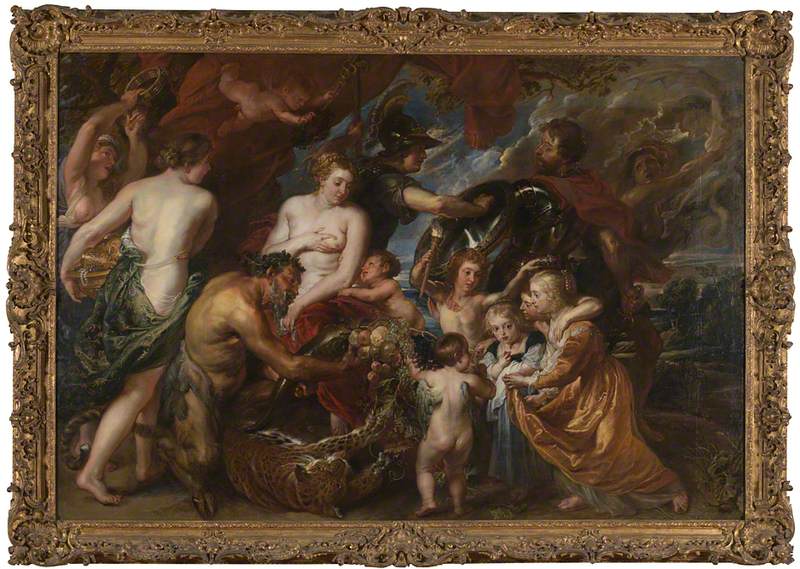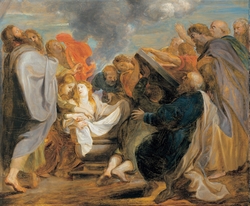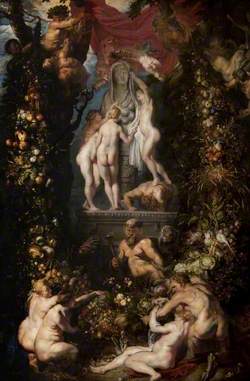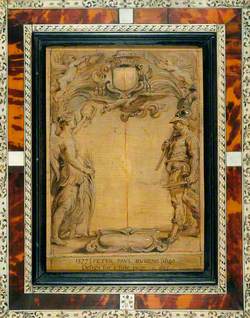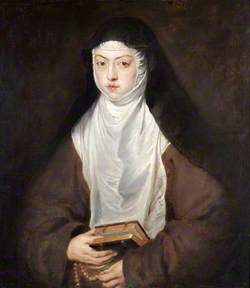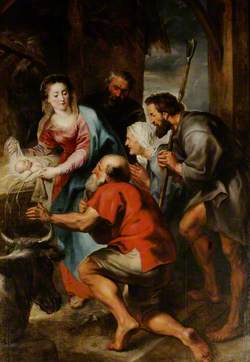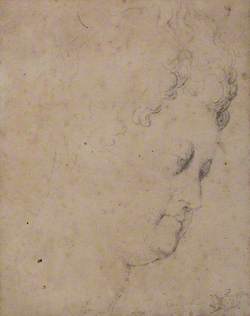How you can use this image
This image can be used for non-commercial research or private study purposes, and other UK exceptions to copyright permitted to users based in the United Kingdom under the Copyright, Designs and Patents Act 1988, as amended and revised. Any other type of use will need to be cleared with the rights holder(s).
Review the copyright credit lines that are located underneath the image, as these indicate who manages the copyright (©) within the artwork, and the photographic rights within the image.
The collection that owns the artwork may have more information on their own website about permitted uses and image licensing options.
Review our guidance pages which explain how you can reuse images, how to credit an image and how to find images in the public domain or with a Creative Commons licence available.
Buy a print or image licence
You can purchase this reproduction
If you have any products in your basket we recommend that you complete your purchase from Art UK before you leave our site to avoid losing your purchases.
Notes
Add or edit a note on this artwork that only you can see. You can find notes again by going to the ‘Notes’ section of your account.
This picture was made for King Charles I of England and given to him by Rubens, who was acting as an envoy of Philip IV of Spain, in 1630. The two countries had been at war for five years and both sides were keen for a peace deal. The painting is an allegory, the figures representing different virtues and other abstract concepts, and there is a clear moral narrative. Among the key figures, the woman in the centre represents both Pax (Peace) and Ceres, goddess of the earth, and she is sharing her bounty with a group of children in the foreground. These represent future generations, but are also portraits of the children of Sir Balthasar Gerbier, Rubens’s host. Just behind Pax, Minerva, goddess of wisdom, is protecting the group from Mars, god of war.
Title
Minerva protects Pax from Mars ('Peace and War')
Date
1629-30
Medium
Oil on canvas
Measurements
H 203.5 x W 298 cm
Accession number
NG46
Acquisition method
Presented by the Duke of Sutherland, 1828
Work type
Painting
